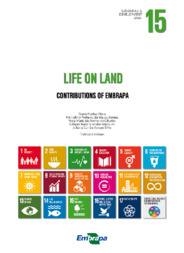Alien species: economical use, control and impact reduction.
Alien species: economical use, control and impact reduction.
Author(s): MARQUES, D. K. S.; SILVA, J. C. B.; OLIVEIRA, M. D. de; MATTHIENSEN, A.; IEDE, E. T.; LISITA, F. O.; GERHARD, P.; SANTOS, S. A.; PENTEADO, S. do R. C.; SALIS, S. M. de; ABREU, U. G. P. de; REIS, V. D. A. dos
Summary: This chapter deals with the contributions of the Brazilian Agricultural Research Corporation (Embrapa) to reach target 15.8 of the Sustainable Development Goals 15 (United Nations, 2018): By 2020, introduce measures to prevent the introduction and significantly reduce the impact of invasive alien species on land and water ecosystems and control or eradicate the priority species. Invasive species are one of the most important environmental challenges in the world. It is not always possible to combat them; generally, complex and expensive proceedings without guaranteed results are necessary. To reduce the impact of alien organisms on the environment, management strategies are used aiming to create mechanisms of environmental resistance.
Publication year: 2019
Types of publication: Book sections
Unit: Embrapa Pantanal
Keywords: Biodiversidade, Biodiversity, Invasive species
Observation
Some of Embrapa's publications are published as ePub files. To read them, use or download one of the following free software options to your computer or mobile device. Android: Google Play Books; IOS: iBooks; Windows and Linux: Calibre.
Access other publications
Access the Agricultural Research Database (BDPA) to consult Embrapa's full library collection and records.
Visit Embrapa Bookstore to purchase books and other publications sold by Embrapa.

